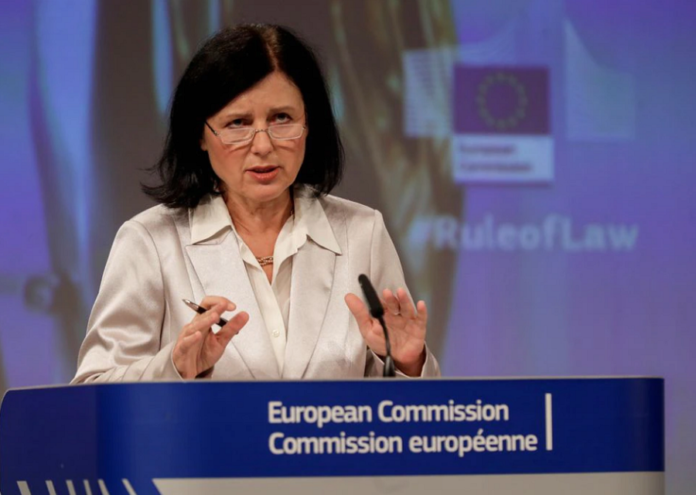The European Union told Hungary and Poland on Wednesday to improve judicial and media independence, as well as anti-graft safeguards, saying conditions to unlock billions in aid for the two remain unaddressed and serious concerns persist, according to Reuters.
The assessment came in the EU executive’s new rule of law report, which includes tips for democratic improvements in all of the bloc’s 28 member states, from better financial disclosure by officials to digitalization of public administration.
But eyes are on the two former communist countries where Eurosceptic governments have been fighting increasingly bitter battles with the EU over migration, human rights, environmental affairs and democratic values.
“Russia’s invasion of Ukraine is yet another reminder that fundamental rights and the rule of law are the pillars of democracy,” European Commissioner for Values and Transparency Vera Jourova said in presenting the report.
“Ukraine is at war against (Russian President Vladimir) Putin because Putin didn’t like Ukraine going in the direction of a democratic state. As we help uphold the rule of law in Ukraine, we can only remain credible if our own house is in order.”
The Brussels-based Commission is withohlding Budapest’s access to 15.5 billion euros of stimulus funds meant to help lift economies from the COVID dip, and to another 36 billion euros envisaged to Poland, the largest country in the EU’s east.
For Hungary, the Commission said concerns about judicial independence “remain unaddressed”, recommending that Budapest strengthens the role of its National Judicial Council, as well enhancing the independence of media regulatory authority and adopting „comprehensive reforms on lobbying”.
To Warsaw, it said that “serious concerns persist related to the independence of the Polish judiciary”.
It prescribed separation of the roles of justice minister and prosecutor general, improving civil society’s access to policy-making and ensuring fair process in deciding on operating licenses for media.
That comes at a sensitive time for Viktor Orban, long-time prime minister of Hungary, where the forint currency hit record lows against the euro amid double-digit inflation and surging energy costs.
Budapest has said repeatedly over the weeks that it was ready to seal a deal with the Commission but the executive has reported insufficient progress from Hungary, which has for years resisted pressure step up safeguards against corruption.


